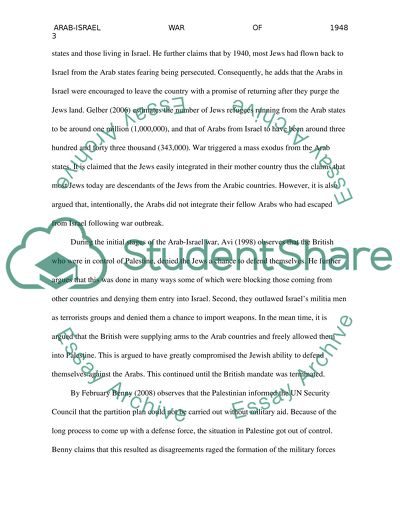Cite this document
(“Arab-Israeli War of 1948 Essay Example | Topics and Well Written Essays - 3000 words”, n.d.)
Retrieved from https://studentshare.org/history/1393568-arab-israeli-war-of-1948
Retrieved from https://studentshare.org/history/1393568-arab-israeli-war-of-1948
(Arab-Israeli War of 1948 Essay Example | Topics and Well Written Essays - 3000 Words)
https://studentshare.org/history/1393568-arab-israeli-war-of-1948.
https://studentshare.org/history/1393568-arab-israeli-war-of-1948.
“Arab-Israeli War of 1948 Essay Example | Topics and Well Written Essays - 3000 Words”, n.d. https://studentshare.org/history/1393568-arab-israeli-war-of-1948.


